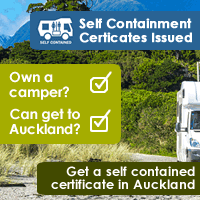Customs, Excise & Quarantine
Many of the prohibitions and restrictions in place are common sense but others are a little more unusual such as the rules regarding food stuffs and anything deemed a threat to agricultural areas. As an island nation, New Zealand relies heavily on its home-grown produce for both its domestic and export market. Biosecurity is especially strict to avoid introducing pests and diseases from overseas which might negatively impact on the country's agricultural/horticulture industry as well as forestry and tourism.
Each restriction in place has been implemented to protect the separate (and sometimes cross-over) areas of community, environment and economy.
Your Arrival Card
Usually before landing you will be given a passenger arrival card to complete before you enter the immigration section of the airport. The card is totally self-explanatory and even though some of the questions may appear odd each has its purpose. If you fill in the card honestly and accurately you won't come unstuck. If in any doubt simply talk to a Customs or MPI Biosecurity Officer about any concerns. Hiding something prohibited – no matter how innocuous and innocent that might appear to you - which is then discovered later can land you in seriously hot water and a fine which might not just make a dent in your travel money but wipe it out and then some.
There are also 'amnesty' bins at the airport where you can dump any items which the arrival card has warned you are unacceptable items.
Food Stuffs and Other Items Deemed to be a Risk to Biosecurity
Most food stuff is on the illegal-to-bring-in list. Most people get caught out because they have brought along left-over flight snacks such as fruit, sandwiches and so forth. If you should suddenly discover such an item sitting squashed and forgotten at the bottom of you carry-on luggage (and let's face it after the mammoth-length flight it often takes to get to New Zealand, brains aren't necessarily functioning at optimum capacity) you can dump it at the airport. You might also have bought some comfort food from home to keep you going in alien lands – this will also have to be binned.
Any kind of seed, plants/plant parts or flowers are also prohibited along with things like honey, straw, cane/bamboo/rattan items, pine cones, pot-pourri and any other type of organic matter.
Also on the restricted list and included as items in your possession which you are obliged by law to declare are: feathers, bones, tusks, furs, skins, hunting trophies, stuffed animals and reptiles, unprocessed wool and animal hair, items made from animal skin (e.g. crocodile handbags) and any kind of animal equipment such as riding equipment.
Corals, clams, turtle/tortoise shell, products made from endangered species and ivory are all totally banned from import.
You are allowed to bring in wooden products, golf clubs, sporting equipment, camping gear and any type of possession which would typically be used outdoors but you will need to declare them so an officer can check their condition. If these items are dirty or mud-caked from previous use they will be taken away to be cleaned (and you might get frowned at). The same goes for walking/hiking boots and your backpack itself. Cleaning this kind of gear before you set off will help you avoid long delays at the airport when probably all you want to do is lie down horizontally somewhere and sleep for a day after the long flight.
And just in case you're tempted to try and slip something through and avoid the queues – you might like to know that fines for infringement start at an instant NZ$400 and run up to NZ$100,000 with the added risk of up to five years in prison for serious breaches of the law. The instant fine can be applied if you have filled in your arrival card inaccurately either accidentally or in a deliberate ploy to bring something in which is restricted.
For a fully comprehensive list of banned and restricted items see http://www.mpi.govt.nz/importing/ much of which relates to larger scale importing but also has all the information you need regarding personal possessions and goods.
Other Restricted Items
Most forbidden items which fall outside of the biosecurity umbrella are fairly obvious such as illicit drugs, firearms, weapons, explosives, steroids and the like. For a full list of restricted items see:
http://www.customs.govt.nz/features/prohibited/imports/Pages/default.aspx
Customs and Excise
Just as is the case with most countries all over the world there are restrictions on certain goods you can bring in without paying tax. If you want to stock up at the duty-free places before your flight or on landing in New Zealand make sure you know what these allowances are per person. If in doubt ask the staff at the shops themselves who are usually clued up on such things.















